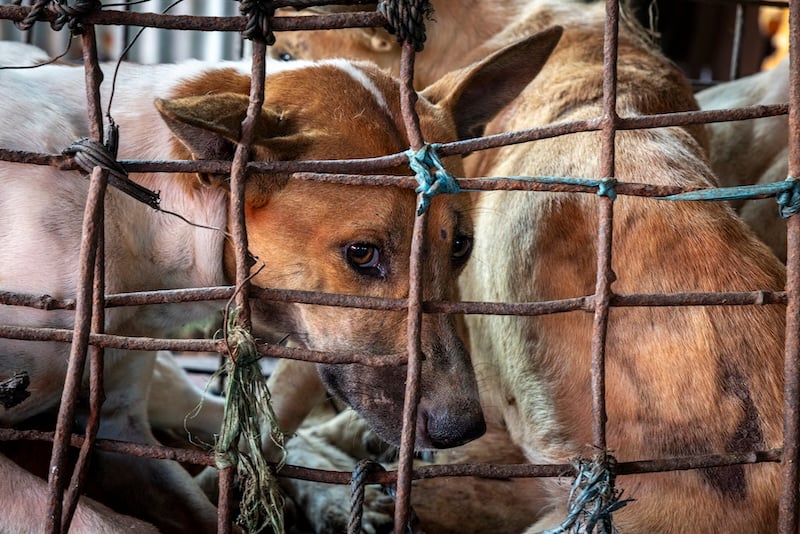A federal judge has once again stopped an attempt by Iowa lawmakers to criminalize animal cruelty investigations into factory farms.
Judge Stephanie Rose struck down the state’s most recent “ag-gag” law — which made recording or taking pictures inside of animal agriculture facilities punishable by up to two years in prison — as unconstitutional and violating First Amendment free speech rights.
The term “ag-gag” refers to any legislation that attempts to prevent whistleblowers or animal welfare advocates from gathering evidence of animal cruelty, unsafe working conditions or food-safety threats inside of agriculture operations — and this most recent law, passed in April 2021, is Iowa’s third attempt since 2012.
The Animal Legal Defense Fund (ALDF), People For The Ethical Treatment of Animals (PETA) and Bailing Out Benji sued Iowa in August 2021, according to the Gazette. Food & Water Watch and Iowa Citizens for Community Improvement also joined in on the legal action.
In her ruling, Rose noted that exempting private property from First Amendment review could result in criminalizing free speech, the Cedar Rapids Gazette reported. Rose also noted that the U.S. Supreme Court has previously struck down laws that limit speech on private property, like factory farms.
Iowa’s first attempted ag-gag law was struck down at the district level and on appeal, and the second also was rejected as unconstitutional and is currently under review in appeals court.
Courts have struck down similar laws in North Carolina, Kansas, Idaho, Utah and Wyoming. A challenge to an Arkansas law is currently pending in the district court, and an appeal of a district court quashing of a North Carolina ag-gag law is pending in a federal appeals court.
Critics have noted the lack of transparency and accountability resulting from ag-gag laws have clear and negative effects for both animals and the American public.
“The ability to investigate and document how our food is made is critical in ensuring a just and transparent food system that holds companies and government institutions accountable,” David Muraskin from Public Justice, a nonprofit law firm that represented Iowa Citizens for Community Improvement in the lawsuit, said in a statement.
Iowa’s ag-gag laws impact animal welfare investigations at factory farms, slaughterhouses and puppy mills while protecting agribusiness interests, Mike Heymsfield from the Animal Legal Defense Fund wrote in the River Cities’ Reader.
No federal U.S. laws oversee the conditions animals raised for food endure, and laws aimed at providing more humane conditions for slaughter and transport are laxly enforced, Heymsfield added.
Because of this absence of legal protections for animals and consumers, undercover investigations are the main source of public information about animal farming practices in the United States, ALDF said.
“It is past time for the animal-agriculture industry to acknowledge that consumers do not want to support an industry that is cruel to animals — and Iowa cannot infringe on our constitutional rights in order to hide abuse,” ALDF Executive Director Stephen Wells said in a statement. “The state of Iowa continues to fail in its efforts to prohibit whistleblowers and undercover investigators from exposing the inhumane treatment of animals, worker-safety concerns, and food-safety issues in factory farms and slaughterhouses.”
Read more about other ‘Ag-Gag’ laws that have been struck down here.
Judges Strike Down Iowa ‘Ag-Gag’ Law As Unconstitutional- Again







